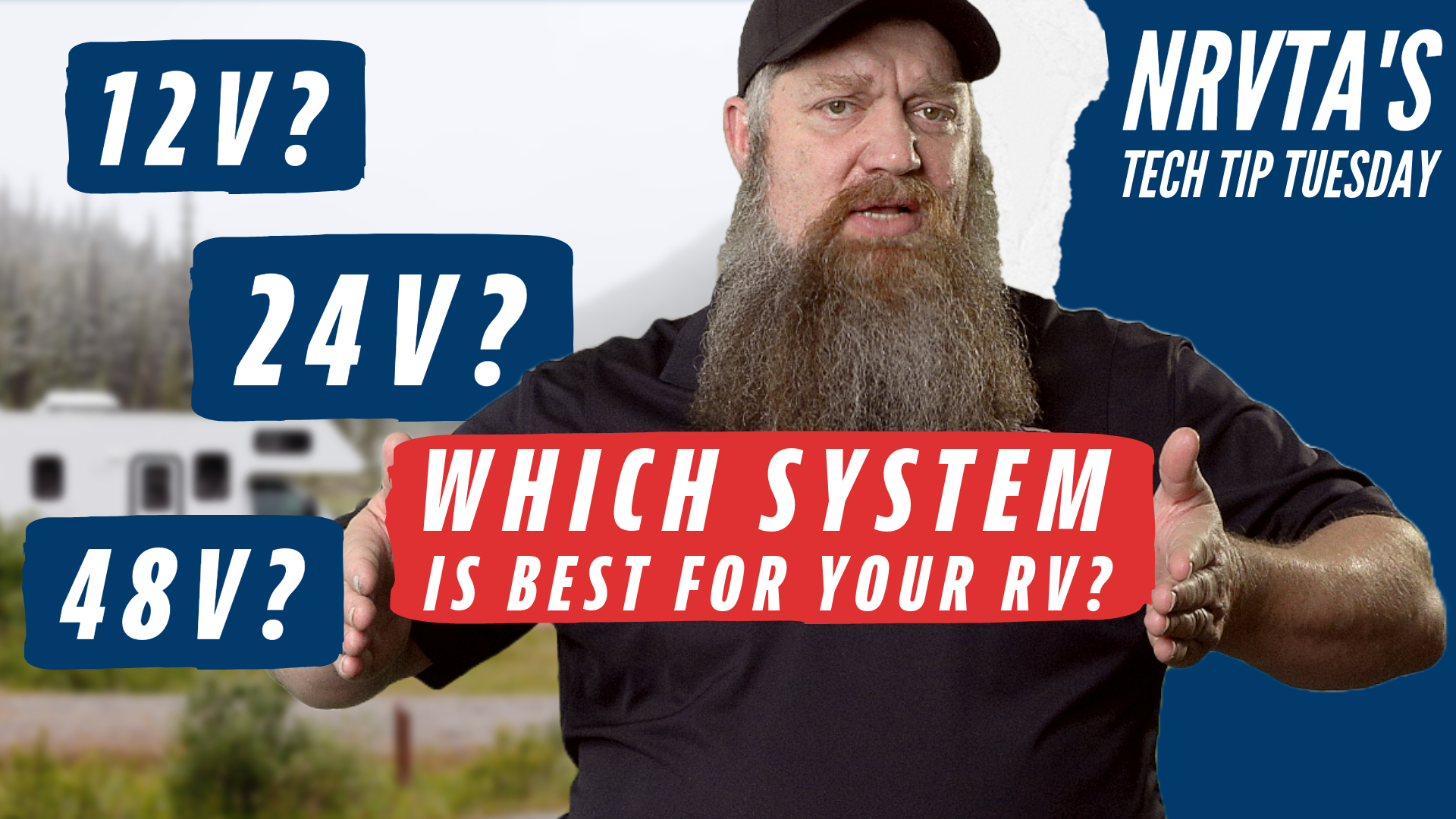Get your RV Technician Certification in as little as 5 weeks!

Welcome to another 2-Minute Tech Tip Tuesday, brought to you by the National RV Training Academy—the largest hands-on RV training facility in America! Before we dive into today’s topic, take a moment to hit the Subscribe button to stay updated on all things RV.
This week, we’re answering a great question from Greg Mallorie, who’s curious about the differences between 12V, 24V, and 48V solar systems, and which might work best for his 2010 Airstream Classic. Let’s break it down.
Voltage Systems Explained
The primary difference between 12V, 24V, and 48V systems lies in how they handle power efficiency and compatibility with your RV’s appliances.
- Efficiency
- 12V Systems: Require more amperage to convert to 120V (common household voltage). For example, pulling power from 12V to 120V requires 10x the amperage.
- 24V Systems: Require half the amperage compared to 12V systems, making them more efficient.
- 48V Systems: Require even less amperage (just 2.5x), resulting in the highest efficiency.
- 12V: ~90% efficient.
- 24V: ~94% efficient.
- 48V: ~98% efficient.
- Compatibility with RV Systems
Most RV appliances (lights, fans, refrigerators, etc.) are designed to run on 12V. If you switch to a 24V or 48V system, you’ll need an additional component—a DC-to-DC converter—to step down the voltage for your 12V devices. - Component Availability
- 12V Systems: Widely used and supported across the RV industry. Replacement parts and service are easy to find.
- 24V and 48V Systems: Less common, which might limit available components or require more effort for repairs.
Which System Should You Choose?
- 12V System
- Best For: Simplicity and compatibility with your RV’s existing 12V appliances.
- Drawbacks: Less efficient for high-power loads due to higher amperage requirements.
- 24V System
- Best For: A balance between efficiency and simplicity.
- Advantages: Reduced energy loss compared to 12V, with fewer compatibility challenges than 48V systems.
- 48V System
- Best For: Maximum efficiency and larger solar setups powering high-demand appliances (e.g., air conditioners, heaters).
- Drawbacks: Requires additional components and higher upfront costs.
Recommended Setup for Your Airstream
For your 2010 Airstream Classic, consider the following:
- If your power demands are moderate and you want to keep things simple, stick with a 12V system.
- If you’re planning a more substantial solar setup and are comfortable adding a DC-to-DC converter, a 24V system is a great middle ground.
- For large, full-time setups requiring high efficiency, a 48V system might be worth the investment, provided you’re okay with the added complexity.
Final Thoughts
There’s no “wrong” choice here—it all comes down to your power needs, budget, and willingness to add extra components. If you’re unsure, a 24V system often strikes a good balance. Keep your 12V system for your RV’s existing appliances and let the solar system handle the heavy lifting for your 120V needs.
Still have questions? Drop me an email or comment below, and I’ll be happy to help.
Get Registered Today!
Talk to a student advisor to learn more!